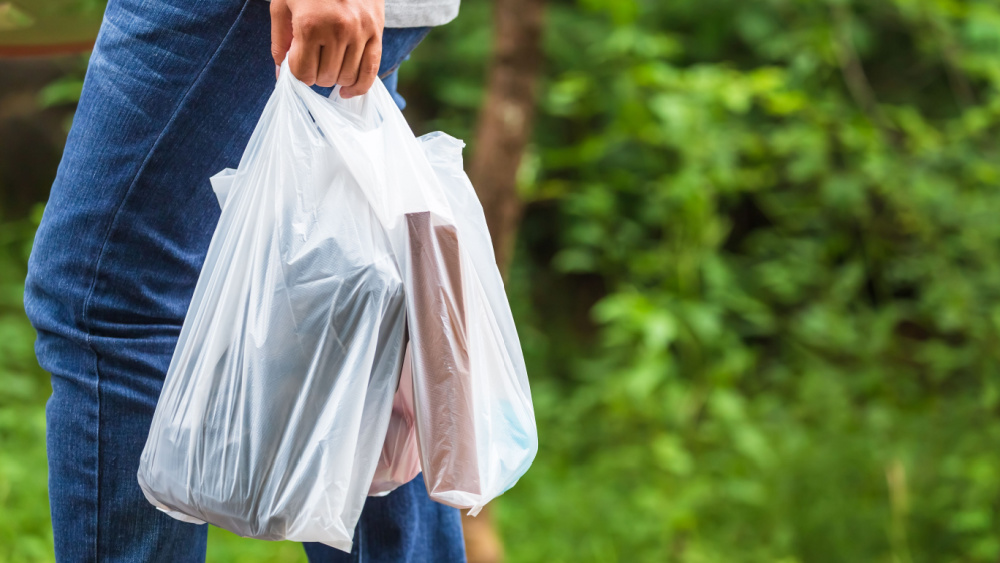Plastic, paper, or cotton bag? Which of them is the most environmentally friendly? The answer will surprise you. Each of these bags has its pros and cons. Let’s take a look at what impacts different types of bags have on the environment.
Plastic bag
In the 21st century, plastics are a buzzword but in a negative sense. We constantly hear that plastics are demonized for pollution, but is there another side to the story?

Let’s look at the very beginning of a great idea. Swedish engineer Sten Gustaf Thulin invented the plastic shopping bag in 1959 as an eco-friendly alternative to paper bags. Aiming to avoid deforestation, he proposed a brilliant solution: a low-impact plastic requiring minimal water, oil, and energy.
The invention of plastic bags, which would be reusable and long-lasting, was a great idea. And it happened in the 70’s and 80’s. The plastic bags were used for shopping, folded in handbags or pockets, and they were used until the moment the bag came apart in people’s hands.
Just remember, even in our world a few decades ago, plastic bags were also used multiple times and it was not common to throw away a plastic bag after a single use. So, where did the mistake happen? The mistake happened because of the comfort of users. The plastic bags were given free of charge to all purchases and consumers grew lazy and learned to throw away the bags after a single use. Invented to save trees, plastic bags became a polluting burden due to our preference for convenience.

And can a plastic bag be recycled at all? Yes, it is possible, but recycling plastic bags changes both the color and the quality.
Another question about recycling is what happens to a plastic bag that we throw into a mixed waste container. If the plastic bag ends up in a landfill, it takes hundreds of years to decompose. In the case of its disposal by burning, the amount of carbon footprint released into the air is equivalent to the weight of the plastic bag.
Paper bag
Because we, as consumers, contaminated the whole planet as a result of our comfort, we decided that using paper bags is a better option than purchasing the rejected plastic bag. And we have come back to the problem from the 60s, where due to a big demand for paper bags, there has been a huge deforestation, where trees which should serve as a source of oxygen for our planet are used in the production, logging, and transport.
So why isn’t the paper bag the best solution? Paper bags come at a hefty environmental cost. Making them requires lots of trees, water, and energy while polluting waterways and outpacing efforts to plant new trees.

Even a paper bag can’t be recycled indefinitely. It can be recycled up to 7 times but the quality of the paper is reduced, and in the last phase of recycling. If the paper bag is not recycled and ends up in a landfill, where it is covered by a layer of clay without access to oxygen, it can take hundreds of years to decompose.
In the case of its disposal by burning, the amount of carbon footprint released into the air is equivalent to the weight of the plastic bag. And the paper bag weighs more than plastic bag, it takes up more space in landfill sites. It is also worth mentioning that paper bags cannot be used too many times, because they are torn easily and can not be used repeatedly.
Cotton bag
The cotton bag has its advantages and disadvantages. Unfortunately, both cotton bags and organic cotton bags are less eco-friendly due to their higher environmental impact at the beginning of the growing process. This impact is primarily caused by big water consumption while growing cotton, increasing emissions, which also results in the enlargement of the ozone hole. One of the negative impacts of the cotton bag is the unwelcome change of the land, where the cotton is grown, which is not negligible. While initially more expensive than paper or plastic, cotton bags are washable, repairable, and last a long time with proper care.

Which bag is the best?
What is the advice in the end? Carry your bag to use as long as you can. And when the bag wears out, be it a paper, plastic, or cloth, don’t forget to recycle it.
For more information about plastic bags, contact us.



